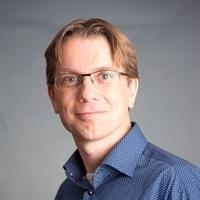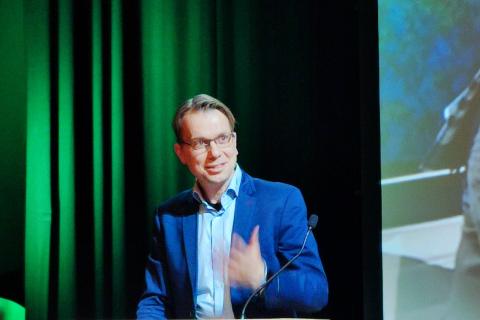
Topics and Regions
Bram Büscher is Professor and Chair of the Sociology of Development and Change group at Wageningen University and Visiting Professor at the Department of Geography, Environmental Management and Energy Studies of the University of Johannesburg. His research and writing revolve around the political economy of environment and development with specific interests in biodiversity, conservation, new media and digitalization, violence and extraction. His broader theoretical project seeks to bring biodiversity, human-nonhuman relations and conservation deeper into our understanding of the historical and contemporary trajectories of global capitalism.
Bram has published over 100 peer-reviewed articles and chapters and is the author of Transforming the Frontier. Peace Parks and the Politics of Neoliberal Conservation in Southern Africa (Duke University Press, 2013). Together with Robert Fletcher, he authored The Conservation Radical Ideas for Saving Nature Beyond The Anthropocene. This 2020 book was published by Verso and has been translated into Spanish, German and French, with Italian forthcoming. His most recent book, The Truth About Nature. Environmentalism in the Era of Post-Truth Politics and Platform Capitalism was published by the University of California Press in 2021. Bram is one of the senior editors of the open-access journal Conservation & Society (www.conservationandsociety.org).
Details
Location
Contributions
Displaying 1 - 1 of 1Keynote Speech from Bram Büscher: Deepening Social Justice
Speaking truth to power is an art, but increasingly a lost art. This goes as much for academia as for the rest of the world. Indeed and unfortunately, much of academia reflects the world in which it functions and often makes the challenge of deepening social justice harder rather than smaller. To put it bluntly, much of academia has resorted to instrumental and naïve beliefs in innovation, technology and efficiency (which dominate the natural sciences) or (as in much of the social-economic sciences) increasingly arcane niche debates that too often revolve around virtue-signalling, methodological-theoretical wizardry or apolitical pragmatism. What we seem to have lost to a good degree – though to be sure: it was never a dominant endeavour and at the same time it has never been absent either – is the art of speaking truth to power.

